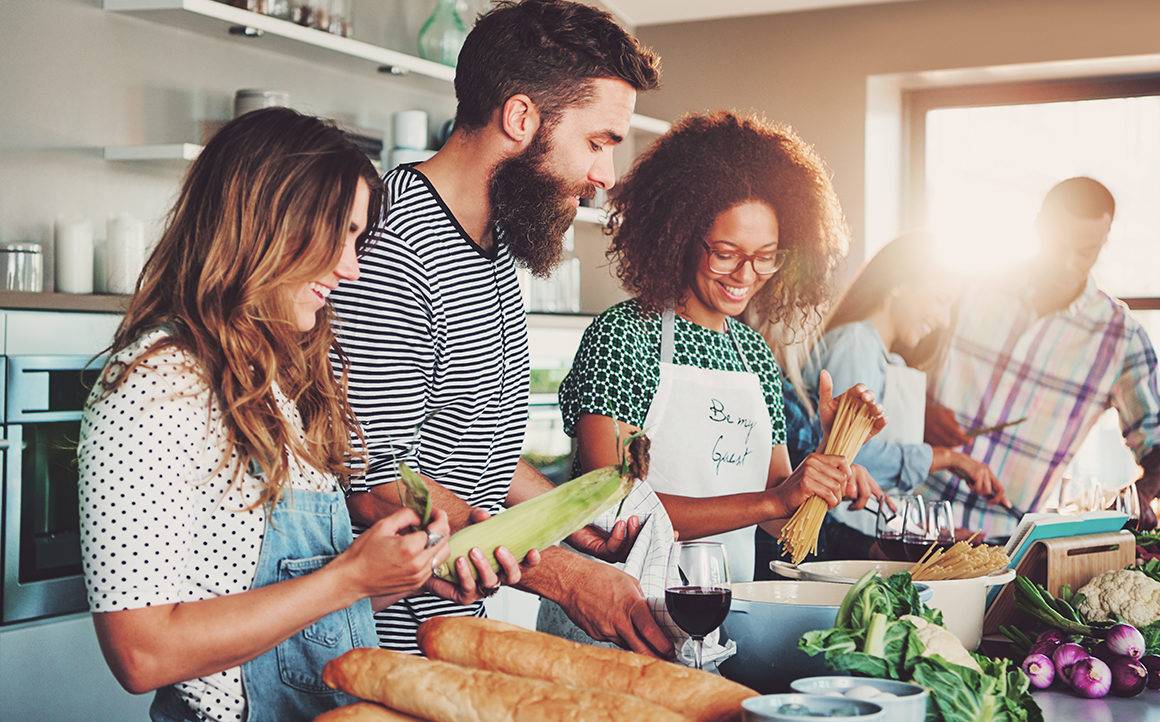5 Food Tips to Make Sure You Stay Safe and Healthy

Most people like to eat a varied diet. You might have certain ethnic cuisines you enjoy more than others or particular dishes you like to make at home. The longer many individuals live, the more recipes they learn, and the more proficient they become in the culinary arts.
If you are just starting to learn how to cook, and you’re also learning how to shop for the foods you most enjoy, there are some danger factors to keep in mind. If you ingest unsafe food, you or one of your family members can get food poisoning. That can make you very sick, so this is nothing to take lightly.
Let’s go over five of our best tips for food shopping, storage, and preparation.
You Can Find Food Contamination on the Outside of Packaging
When you are in the grocery store, and you pick up something like a package of chicken, you probably understand that you have to cook the chicken before ingesting it. However, what you might not realize is that bacteria could lurk even on the package’s exterior.
It’s a disturbing fact that 3 out of 4 packaged chickens contain campylobacter, a dangerous bacteria strain. These bacteria can cause health problems, such as stomach pain, diarrhea, vomiting, and fever. That’s not something you or your family ever want to experience.
One thing you can do is get a clear produce bag and put each package of meat you buy in the grocery store inside it. That will prevent the meat from leaking and possibly contaminating your other groceries. Also, you can ask the cashier to put that meat in a separate bag, which makes cross-contamination even less likely.
Wash Your Hands Right After Putting the Groceries Away
Once you finish grocery shopping and you’re home again with all your packages, you’ll put away all your meat, produce, and so forth. Make sure as you store your supplies that nothing is leaking.
Once you’ve put everything away, you can wash your hands thoroughly with soap and hot water. That should take care of any bacteria that are still present on your skin.
If any meat package is leaking, put it in an appropriately-sized storage bag with a zip-lock seal. You can pop it in the freezer or fridge, depending on how soon you plan on eating it. You should also clean up any drips, so kids or pets don’t step on them and track them around.
Make Sure to Cook Your Food All the Way Through
There are some foods that certain people like to eat when they do not cook them all the way through. For instance, many individuals like their steak medium-rare or even rare, meaning that it still has a warm, pink center rather than being completely cooked to a safe internal temperature.
You can probably eat a medium-rare steak and be fine if that’s your preference. There are some meats you have to cook all the way through, though, with no exceptions.
Any pork product or chicken is up at the top of that list. If you’ve got a pork tenderloin or some pork chops, for example, you must cook them all the way through so that there is no pink showing. It’s the same with chicken: if it’s still even the slightest bit raw inside, you must cook it more.
As you become more of an experienced cook, you will learn how long it usually takes meat to cook, and you might also be able to tell at a glance something’s doneness level. As you’re learning, though, it’s best to cut into a pork chop or chicken breast to see if it’s cooked through.
You might also use a meat thermometer if you like. Generally, meat has to reach an internal temperature of 165 degrees Fahrenheit before you can safely eat it.
Make Sure to Cover Up Your Leftovers
You should also be sure to put your leftovers in an airtight container in the fridge or freezer rather than just sticking them in there uncovered and on a plate. You can keep various-sized Tupperware contains at home in a handy cabinet or closet.
Most meat dishes are okay for a few days at most. If you have something in there for longer than a week, you’re probably going to need to throw that out. Most side dishes are also fine for a few days, but no more than that.
Once you put some leftovers in the fridge, you should understand that they are “on the clock,” so to speak. You should prioritize eating them before starting other cooking projects if you do not want to waste that food.
Clean All Your Surfaces After Cooking
You might finish cooking a big dinner and put all the dishes in the dishwasher. The counter looks clean, and there is nothing on it, so you may feel like there’s nothing more for you to do.
That’s incorrect, though. You still have to use an antibacterial sanitizer and wipe down the counter and anywhere else you know raw food touched.
You can keep the antibacterial kitchen cleanser somewhere convenient in the room, such as under the sink. This way, you’re not touching bacteria when your hands come in contact with the counter. You’re now ready to tackle your next cooking project, starting from scratch.
You will also want to clean your eco-friendly shopping bags regularly. You might have a half dozen or so that you bring to the grocery store so you don’t have to keep getting paper or plastic bags. That’s great, but you never know if a little bit of meat juice or anything else along those lines has leaked into it.
You can wash most bags in the washing machine, though check the bag’s tag to see if it indicates hand wash only. You should do that at least every couple of weeks instead of tossing the bags in your car’s backseat or back in the trunk.
Share via:





Leave a Comment